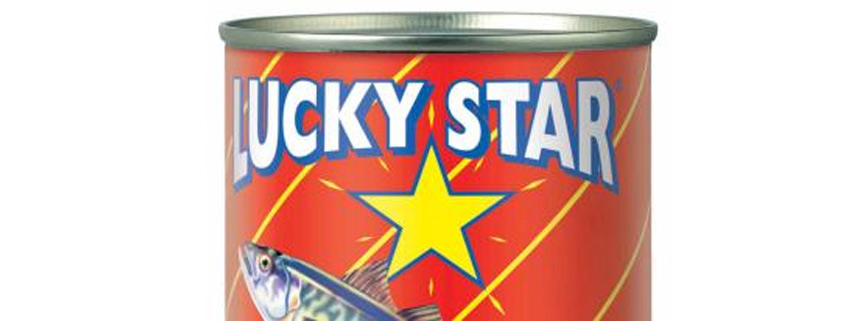Oceana confirms $382m deal for Daybrook Fisheries
South Africa’s Oceana Group has confirmed a deal with the parent company of US menhaden harvester Daybrook Fisheries, for $382.3 million.
The board of directors of Oceana has announced that it has concluded an agreement to acquire 100% of the the firm indirectly, by combination of a merger and stock purchase, for approximately ZAR 4.6 billion, which will be settled in cash.
The deal will be satisfied through a combination of Oceana cash on hand, term debt facilities (as required), an equity bridge facility and United States debt.
Undercurrent News previously reported the South African group had been in talks with the US firm, on May 11. The deal still depends on conditions and approval from Oceana’s shareholders and appropriate governing authorities.
Daybrook Fisheries is a vertically integrated fishing company engaged in harvesting and processing of Gulf Menhaden into fishmeal and fish oil. In 2014 it sold 76,862 metric tons of fishmeal and fish oil equivalent, to earn revenue of $124m. More on the firm below.
Oceana’s strategy includes the expansion of its international operations in order to increase diversification of its targeted fish species, operational geography, product profile and currency exposure, the firm said.
“As the largest fishing group in South Africa, Oceana has evaluated opportunities in South Africa, the rest of Africa and globally to meaningfully increase its scale and diversity.”
“Oceana believes that this opportunity has the profile and scale to deliver the risk adjusted returns shareholders require.”
The acquisition represents an opportunity for Oceana to undertake a “truly transformative transaction”, and acquire access to a sustainable and well managed fishing resource.
Based on Oceana and World Bank analysis, the increase in fishmeal demand is primarily attributable to the aquaculture industry which is one of the fastest growing food production segments in the world.
Demand for fishmeal and fish oil is increasing due to rising global protein requirements, growing demand from aquaculture production as well as growing demand as inputs into pet food and pork production. Oceana expects this trend to continue in the longer term.
Plus, of course, fishmeal is seeing very strong pricing, driven by demand from aquaculture and the cancelling of the B season for Peruvian anchovy last year.
Prices for super prime fishmeal out of Peru had jumped from levels of $1,600/t at the start of the 2014 first season (by April) to $2,400/t, FOB Peru, in early November last year the highest level reported last year.
The move will increase diversification to Oceana’s product mix and improve currency exposure, while creating a significantly larger group with multicountry exposure. It will also provide Oceana with a platform to explore further initiatives globally.
Oceana said has identified cost savings that can be extracted from Daybrook Fisheries by the incorporation into the broader Oceana Group. These savings are expected to deliver incremental earnings before interest and tax (“ebit”) of at least $3 million (ZAR 32m) per annum, within two years of the acquisition.
Working around the American Fisheries Act
Currently, Daybrook Fisheries’ group structure separates the fishing assets from its processing plant assets, through a whollyowned operating subsidiary named Westbank.
The processing plant assets and sales and administrative functions reside within Daybrook Fisheries, while the fishing vessel and spotter plane assets reside within Westbank.
Oceana’s proposed acquisition will see the restructure of Daybrook Holdings, Daybrook Investors, Daybrook Fisheries, and Westbank (altogether known as the Daybrook group) through a number of transactions whereby, inter alia, 75% of Westbank will be sold to certain Daybrook Group shareholders and management.
This is designed to meet the requirements of the fishery endorsement, issued in terms of the American Fisheries Act, which requires that the control and ownership of qualifying fishing vessels vests in US citizens.
Meanwhile, Oceana will merge DPI Merger Sub, a whollyowned subsidiary of Daybrook Holdings, with Daybrook Fisheries, in terms of which Daybrook Holdings will acquire a 100% direct interest in the surviving corporation, Daybrook Fisheries.
Finally, Oceana US Holdings, a whollyownedUS subsidiary of Oceana, will acquire all of the shares in Daybrook Investors not already owned by the Daybrook Group, as well as the remaining shares in Daybrook Holdings not already held by Daybrook Investors.
Following the above plan, Oceana through Oceana US Holdings will hold a 100% indirect ownership in Daybrook Fisheries and an effective 25% indirect ownership in Westbank, through its ownership in Daybrook Fisheries.
Securing fish supply
Under the new structure, Daybrook Fisheries will secure its supply of Gulf Menhaden from Westbank through an exclusive 30 year fish supply agreement, in terms of which Westbank commits to supply, and Daybrook Fisheries commits to purchase, 100% of the Gulf Menhaden harvested by Westbank.
This agreement is renewable at the option of Daybrook Fisheries for two additional consecutive 10 year periods, Oceana noted in its report on the proposed deal.
Daybrook Fisheries will enter into a membership agreement with those shareholders holding the 75% in Westbank, regulating the relationship of the members as well as the actions of Westbank. The agreement will grant the shareholders a 30 year option to put their Westbank shares to Daybrook Fisheries, exercisable either in November 2016 or in the occurrence of certain trigger events, such as a bankruptcy event occurring in respect of Daybrook Fisheries or the termination of the fish supply agreement.
Depending on the manner in which shareholders exercise their options, a Premium of $15m (ZAR 180m) may be paid to them, which together with the deal for $382.3m would result in an aggregate $397.3m ultimately being paid.
Oceana intends to fund the transaction through a combination of:
- Up to ZAR 2.4bn from cash on hand, with shortfall coming from utilization of ‘term funding’ from ZAR 2.7bn raised by Oceana subsidiary Lucky Star.
- Up to $14m (ZAR 1.7bn) from debt raised in the US and secured by US Group companies only.
- ZAR 1.2bn from an equity bridge facility.
Advisors on the deal are: the Standard Bank of South Africa, as financial and debt adviser and transaction sponsor to Oceana; Antarctica Advisors as United States financial adviser to Oceana; the Standard Bank of South Africa, as South African bookrunner, underwriter and debt funder; and Bank of Montreal and/or its affiliates, as United States bookrunner, underwriter and debt funder.
Daybrook: A $100m+ turnover firm
Established in 1955, Daybrook Fisheries is a verticallyintegrated fishing company engaged in harvesting and processing of Gulf Menhaden into highvalue fishmeal, sold for aquaculture feeds and for further refining into dietary supplements.
Strategically located in Empire, Louisiana, about 60 miles south of New Orleans, Daybrook Fisheries is in close proximity to the abundant and well managed Gulf Menhaden resource, and is the second largest processor of Menhaden in the US.
Daybrook Fisheries is responsible for 35% to 40% of the annual Gulf Menhaden catch.
It sold 76,862t of fishmeal and fish oil equivalent to realize normalized revenue of $114m in 2014.
Daybrook Fisheries’ Dec. 31 2014 yearend reported earnings before interest, tax, amortisation and depreciation (ebitda) was $43m, and normalized ebitda was $48m.
Daybrook Fisheries, through its subsidiary Westbank, currently owns and operates eleven refrigerated tender vessels and ten single Cessna aircraft used to assist vessel captains locate schools of Menhaden. Each vessel carries two 12meter fishing boats, which catch Gulf Menhaden through the purse seining method.
Sales are made to leading domestic and international companies manufacturing animal and aquamarine nutritional products, as well as selected distributors servicing these markets.
Daybrook Fisheries’ proximity to the Port of New Orleans, as well as other Gulf of Mexico ports, enables the competitive export of its products to China and other Asian countries, Europe, and Latin America.
In addition to the operation in Empire, the company also has corporate and executive offices in Morristown, New Jersey and New Orleans, and storage facilities in Memphis, Tennessee and Avondale.



